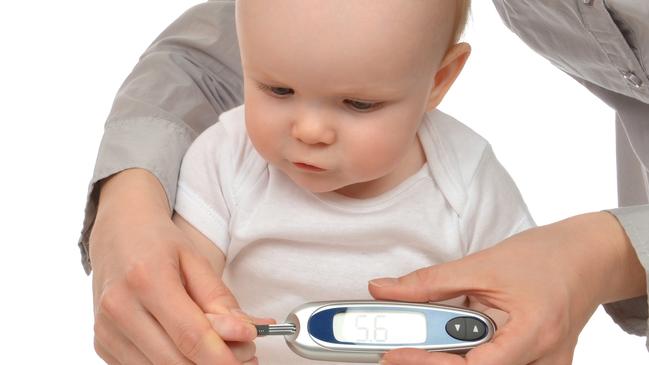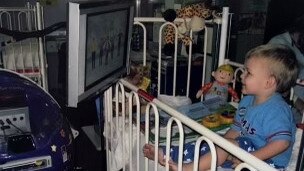Screening to catch diabetes in children
Australia could become first country to adopt childhood screening for Type 1 Diabetes, with specialists devising a new procedure to detect early signs of the disease.

Australia could become the first country in the world to adopt routine childhood screening for Type 1 diabetes, with specialists devising a new procedure to detect early signs of the debilitating auto-immune disease from birth.
A pilot of the national screening program – led by researchers at Sydney University and funded by the Juvenile Diabetes Research Foundation – will launch across locations in NSW, Victoria, Queensland, South Australia and Western Australia, with specialists testing 9000 newborns, six to 12-month-old infants and children aged two, six and 10 years old.
T1D is a lifelong auto-immune disease that means the pancreas cannot produce insulin to regulate the body’s sugar levels; without the hormone, sugars can build up to life-threatening levels, leading to Diabetic Ketoacidosis (DKA).
The screening seeks to identify whether an infant or child shows any pre-symptomatic stages of T1D, when the insulin-producing cells have already been destroyed.
University of Sydney’s Kirstine Bell, who led the development of the pilot program, said the project would be launched with the aim of determining how to best implement screening across Australia, while identifying those who have early-stage T1D.
“The screening program will allow families to know that their newborn or child has an increased chance of developing the condition,” Dr Bell said.
“It’s not a diagnostic test, but it means that we can offer those children ongoing targeted monitoring, which means they won’t have to get really sick before it’s detected.”
Current diagnosis of T1D, according to Dr Bell, happens far too late, with one in three children not diagnosed often until they require emergency attention in intensive care.
Every day, seven Australians are diagnosed with T1D, with 40 per cent of diagnoses occurring when people have reached DKA.
JDRF’s Dorota Pawlak, who has worked in diabetes research for more than two decades, said the screening program could become a centrepiece of early detection and intervention.
“It is also notoriously difficult to diagnose T1D because the symptoms of it can be also symptoms of a viral disease … So, it’s often very hard to pick up until people get to DKA, which is an extremely dangerous stage that can kill people.”
Melanie Cullen, whose son Will was diagnosed with T1D at the age of two, said the screening program would act as a crucial step towards early detection of the disease, as well as raise awareness among the wider public, who have never met someone who has T1D.

“We didn’t pick up any of the symptoms until Will presented with DKA to intensive care where he was eventually diagnosed.
“It wouldn’t have been like this if he was able to undergo this screening program,” Ms Cullen said.








To join the conversation, please log in. Don't have an account? Register
Join the conversation, you are commenting as Logout